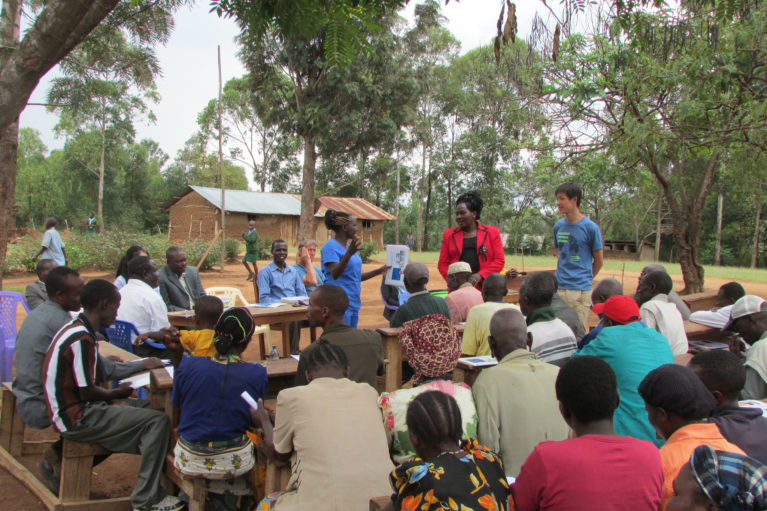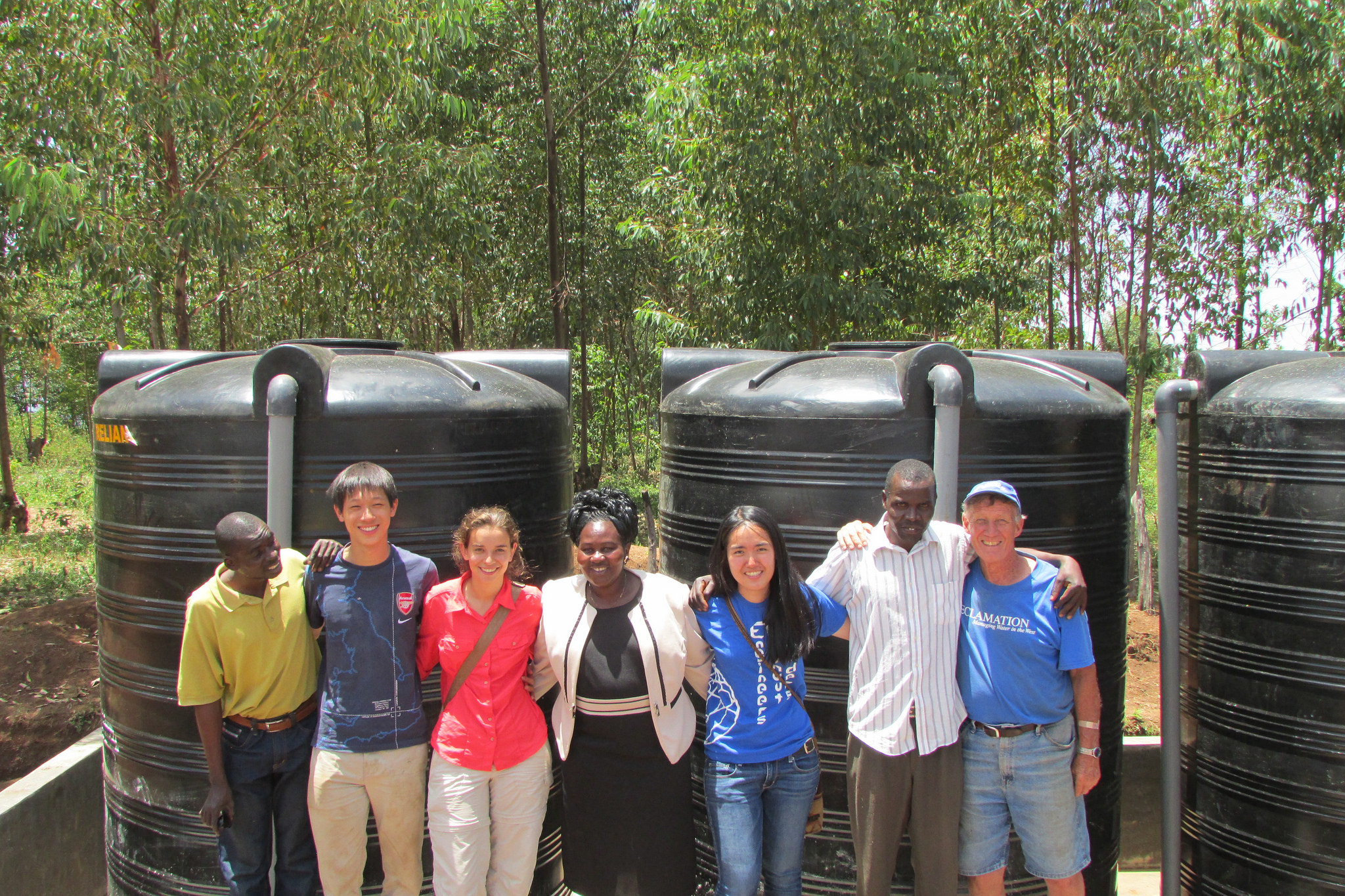“We are eager to become engineers so that at one time we will be the ones to change our environment and the entire environment at large.”
These are the words in a handwritten letter from a student at Muchebe Primary School in Kenya. He wrote it to his penpals at Engineers Without Borders USA Princeton University Chapter (EWB-USA Princeton). The relationship between the Chapter and the Muchebe students exemplifies the broad impacts of EWB-USA projects.
More than Water
EWB-USA Princeton students partnered with the residents of Muchebe to expand the capacity of an existing rainwater catchment system at the primary school. The previously limited supply meant that the school’s 400 students had to leave their classwork to go drink contaminated river water. The increased capacity of the water system allowed the students to focus on their schoolwork. Teachers also observed that the students complained of fewer headaches after the expansion.
But the project had another inspiring effect. Students at Muchebe Primary School saw how engineering projects could bring positive changes to their community. They began expressing aspirations to become engineers when they grew up.

Students and Community Members in Muchebe, Kenya, gather with EWB-USA Princeton members
Staying in Touch
So the students in Muchebe and the EWB-USA Princeton students became penpals, continuing to inspire one another from over 7,000 miles away.
EWB-USA Princeton member Cecilia Stoner said her experience with the Muchebe students prepared her to become an engineering leader.
“EWB-USA has changed my life. I am now a better global citizen,” she said. Better cultural awareness is just one of the ways engineering connects people from across the world.
Returning to Muchebe
The water system at the Muchebe Primary School was a huge success and greatly improved the daily lives of the students there. But it wasn’t enough to meet the needs of the entire community. So EWB-USA Princeton returned to Muchebe to implement a second rainwater catchment system. The school’s system, proven effective and sustainable, served as the model for the new water system.
The second visit to Muchebe was also an opportunity for EWB-USA Princeton students to reunite with their friends at the primary school.
Not only do EWB-USA projects solve pressing problems in underserved regions, but they also empower the next generation of global citizens. From the classrooms of Muchebe to the hallways of Princeton, these transformative experiences inspire students to become changemakers.
Photos courtesy of Engineers Without Borders-USA, Princeton University
